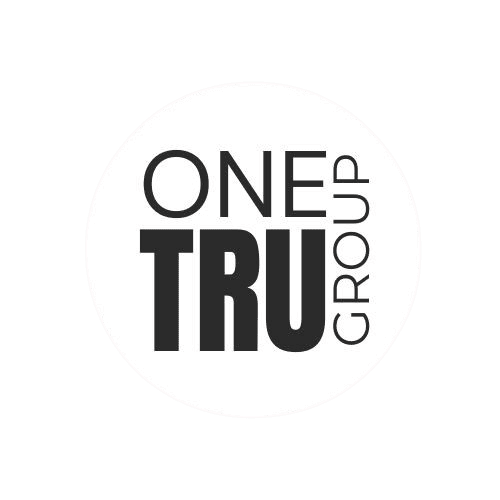What is a QA Framework?
A Quality Assurance (QA) framework is a structured system that defines the processes and guidelines necessary for ensuring high-quality outcomes in various operations, including those within call centers. At its core, a QA framework comprises essential components that work in tandem to establish a consistent quality of service. One of the primary objectives of this framework is to create standardized procedures that can be applied uniformly across all interactions, thereby maintaining a high level of customer satisfaction.
The principles underlying a QA framework typically include the establishment of measurable performance metrics, ongoing staff training, and regular evaluations. By implementing these components, organizations can benchmark their performance against industry standards and continuously improve. In a call center context, this framework is particularly vital because it serves as a guideline for agents, ensuring they adhere to best practices while handling customer inquiries and complaints.
Another significant aspect of a QA framework is its role in quality control and assurance. Quality control refers to the processes used to ensure that the services provided meet certain standards, while quality assurance encompasses the broader framework of policies and procedures aimed at preventing errors. In the dynamic environment of call center operations, a robust QA framework is instrumental in streamlining these quality assurance processes, facilitating the identification of areas in need of improvement.
Moreover, the implementation of a QA framework fosters a culture of accountability among employees, as they understand their responsibilities and the impact they have on overall performance. In turn, this not only enhances the operational efficiency of call centers but also contributes positively to customer experiences, ultimately driving loyalty and trust in the brand.
Components of a QA Framework in Call Centers
A robust Quality Assurance (QA) framework in call center operations is integral to maintaining high service standards and overall customer satisfaction. Several key components contribute to the effectiveness of this framework. The first and foremost is call monitoring, which involves evaluating customer interactions to assess the quality of service representatives’ performance. Through real-time and post-call assessments, QA teams can identify areas for improvement and recognize exemplary service.
Another essential component is the performance evaluation criteria, which sets the benchmarks for assessing agent performance. This typically includes metrics such as call resolution rates, customer feedback scores, and adherence to scripts and processes. By establishing clear criteria, organizations can measure an agent’s performance against defined standards, allowing for objective evaluation and development.
To facilitate continuous improvement, effective feedback mechanisms are critical within a QA framework. Regular feedback sessions enable agents to understand their strengths and weaknesses. Constructive feedback not only motivates agents but also equips them with the necessary insights to enhance their performance. A well-structured feedback mechanism reinforces learning and fosters a culture of growth.
Training programs are another vital element of the QA framework. Ongoing training ensures that call center agents are well-equipped with the skills and knowledge required to meet the evolving needs of customers. By incorporating findings from QA assessments into training modules, organizations can tailor their development initiatives to address specific performance gaps effectively.
Finally, the integration of technology in supporting QA processes can streamline operations and enhance accuracy. Advanced tools such as speech analytics, reporting software, and performance dashboards enable call centers to monitor quality in a systematic manner. This technological support not only optimizes the QA framework but also aids in data-driven decision-making, ensuring that service delivery remains consistently high.
The Role of QA Frameworks in Enhancing Call Center Operations
Implementing a QA framework in call center operations plays a vital role in enhancing various aspects of service delivery. The focus of a QA framework is to standardize processes, ensuring that agents adhere to established protocols while executing their tasks. This leads to increased agent productivity as employees are clear about expectations, resulting in a more efficient workflow.
One of the most significant benefits of a well-structured QA framework is the improvement in customer service. By continuously monitoring and evaluating interactions, call centers can identify strengths and weaknesses in agent performance. This feedback fosters an environment of ongoing improvement, empowering agents to provide high-quality service that meets customer expectations. According to studies, organizations that effectively implement QA frameworks observe significant gains in customer satisfaction scores, demonstrating the direct correlation between quality assurance practices and service outcomes.
Furthermore, a QA framework is instrumental in reducing errors during customer interactions. By establishing a systematic approach to evaluate the quality of calls, organizations can pinpoint areas where agents may require additional training or support. This proactive approach minimizes the likelihood of mistakes, which can subsequently enhance the overall customer experience and protect the organization’s reputation.
Adherence to regulations is another critical aspect where QA frameworks prove beneficial. Call centers operate under various compliance mandates, and a comprehensive QA framework ensures that all regulatory requirements are consistently met. By monitoring calls and generating compliance reports, organizations can demonstrate their commitment to governance and accountability.
Case studies have showcased remarkable improvements in organizations that embrace QA frameworks. For instance, a major call center saw a 30% reduction in customer complaints and a 25% uptick in first-call resolution rates after implementing a structured quality assurance process. Such tangible results underscore how adopting a QA framework can revolutionize call center operations, ultimately benefiting both agents and customers alike.
Challenges and Best Practices in Implementing a QA Framework
Implementing a Quality Assurance (QA) framework in call center operations presents a multitude of challenges that organizations must navigate. One primary obstacle is resistance to change among staff. Employees may perceive QA processes as a means of monitoring performance rather than an opportunity for growth and improvement. Such perceptions can lead to disengagement and reluctance to adopt new practices. Additionally, a lack of sufficient resources, be it time, personnel, or financial investment, can hinder the effective implementation of a QA framework. Call centers often operate under tight budgets and high transaction volumes, making it difficult to prioritize quality assurance initiatives.
Another considerable challenge involves integrating new technologies that facilitate QA processes into existing systems. Many call centers are equipped with legacy systems that may not align with modern QA tools, creating compatibility issues that can delay progress. As a result, organizations may struggle to gather accurate performance data, which is critical for an effective QA framework. The success of a QA initiative is heavily influenced by the culture within the organization. A lack of supportive leadership can exacerbate the challenges faced when attempting to implement a QA framework.
To overcome these issues, best practices should be employed. Comprehensive training programs for staff are essential, ensuring employees understand the importance of quality assurance and how it impacts overall operations. Engaging stakeholders, including frontline staff, in the design and implementation of the QA framework fosters buy-in and accountability. Regular feedback loops and open communication channels can encourage transparency and promote a culture focused on continuous improvement. Additionally, leadership must actively support and champion the QA framework, reinforcing its significance and aligning it with the organization’s strategic goals. By nurturing a positive environment and focusing on teamwork, call centers can successfully implement a QA framework that enhances performance and customer satisfaction.





